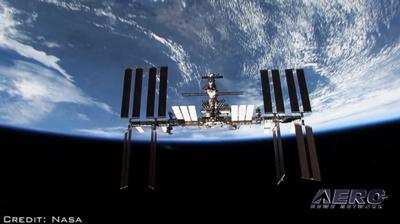National Stem Cell Foundation Studying Effects Of Microgravity On Parkinson's Disease and Multiple Sclerosis
The National Stem Cell Foundation (NSCF), Summit for Stem Cell Foundation, The New York Stem Cell Foundation (NYSCF) Research Institute, and Space Tango have announced a bi-coastal research collaboration to study Parkinson's disease (PD) and primary progressive multiple sclerosis (PPMS) in microgravity. For the first time, cells from patients with PD and PPMS will be sent to the International Space Station (ISS) for a unique opportunity to observe cell-to-cell interactions in neurodegenerative disease when the gravitational forces that act on cells are removed.

Research teams at the Summit for Stem Cell labs in La Jolla, California, and the New York Stem Cell Foundation Research Institute in New York, NY, will conduct the first long-term cell culture experiment in space focused on neurodegenerative diseases. Specifically, the project is developing advanced human cellular models of these diseases based on induced pluripotent stem cells (iPSCs) derived from patients with PD and PPMS. Working across institutions and disciplines, the research teams will convert the iPSCs into different brain cell types and 3D aggregates of these cells called organoids. Notably, these organoids will also incorporate microglia, the immune cells of the brain, derived from patient iPSCs using a protocol developed by NYSCF. Microglia play an important role in mediating inflammation via migration towards damaged areas of the brain that has recently been implicated in the pathogenesis of PD, MS, and several neurodegenerative diseases. These 3D human brain models are making an
unprecedented journey to the International Space Station to study the effects of microgravity on organoid assembly and microglia migration during neuroinflammation. The hardware engineering required to facilitate the transport and survival of the cells to the ISS is being led by space research partner Space Tango. A pilot launch to test the hardware alone will go up this fall, with a full launch to the International Space Station (ISS) from Cape Canaveral in May. The project is funded by NSCF.
"The National Stem Cell Foundation is delighted to be funding innovative science at the frontier of new drug and cell therapy discovery," said Dr. Paula Grisanti, Chairman and CEO of NSCF. "The leading-edge research findings that have developed through this collaboration between important research groups may fundamentally alter our understanding of how and why neurodegeneration occurs."
"We are proud to be working with a great team of scientists and fantastic organizations with the goal of learning more about neurodegenerative disease," said Dr. Andres Bratt-Leal, Director of Research & Development, Parkinson's Project at the Summit for Stem Cell Foundation.
"This is a unique opportunity to study the behavior of neural cells under zero gravity. I'm excited about the project and look forward to learning the results of the experiment," said Dr. Jeanne Loring, Senior Science Advisor, Summit for Stem Cell Foundation.
"NYSCF is committed to pursuing the most inventive approaches to disease research," says Susan L. Solomon, NYSCF CEO. "We are excited to combine our stem cell technology expertise with groundbreaking advancements in aerospace and biological engineering to further the understanding of diseases with a major unmet need."
"We are excited to participate in this pioneering phase of biological research in space," said Dr. Valentina Fossati, New York Stem Cell Foundation Senior Research Investigator. "This project will optimize procedures for conducting experiments in microgravity and leverage the power of stem cells and organoids to better understand cell-cell interactions within the brain."
Kris Kimel, Co-Founder and Chairman of Space Tango said, "This is a powerful and unique alliance that makes it possible to envision the next important breakthroughs in healthcare and technology happening off the planet."
(Source: SpaceTango news release. Image from file)
 Bolen Gives Congress a Rare Thumbs-Up
Bolen Gives Congress a Rare Thumbs-Up The SportPlane Resource Guide RETURNS!!!!
The SportPlane Resource Guide RETURNS!!!! Buying Sprees Continue: Textron eAviation Takes On Amazilia Aerospace
Buying Sprees Continue: Textron eAviation Takes On Amazilia Aerospace Hawker 4000 Bizjets Gain Nav System, Data Link STC
Hawker 4000 Bizjets Gain Nav System, Data Link STC Echodyne Gets BVLOS Waiver for AiRanger Aircraft
Echodyne Gets BVLOS Waiver for AiRanger Aircraft



